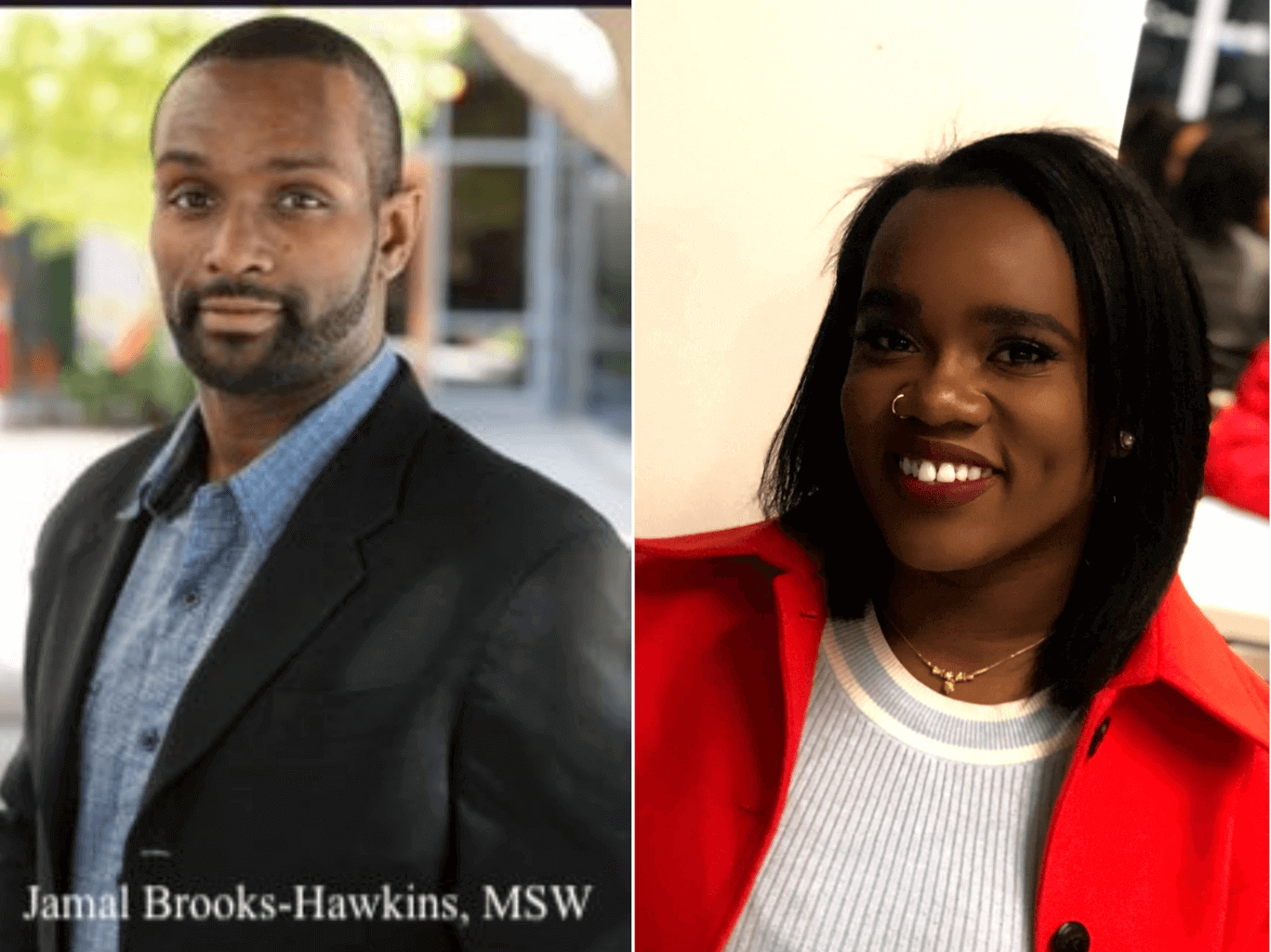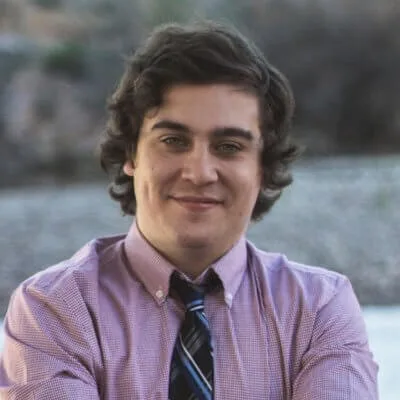
In fall 2020, 204,460 undergraduate students enrolled in Arizona’s public universities, according to a report from the Arizona Board of Regents. About 8,000 of them were Black.
We spoke to four of these students, all from Arizona State University, about what they’ve accomplished, as well as how they’ve been negatively impacted because of their race.
Jamal Brooks-Hawins is a gender studies doctoral student at ASU’s College of Liberal Arts and Sciences.
Alexia Roberts is an undergraduate studying mechanical engineering and political science at the Ira A. Fulton Schools of Engineering and the School of Politics and Global Studies.
Kyle Grout is an undergraduate studying business and financial planning at the WP. Carey School of Business.
Note: This interview has been edited for length and clarity.
What made you interested in your current field of study?
Brooks-Hawkins: My bachelor’s is in theater and my master’s is in social work. I wanted a more interdisciplinary one that really was both social science and humanities. I applied to different gender studies, African-American studies, and social work programs. When it came down to it, gender studies at ASU was the best choice for me and what I want to do.
Roberts: I feel like there’s so much work that still needs to be done for people in spaces like STEM [science, technology, engineering, and mathematics]. I felt like people treated me differently, and that’s why I went into political science. I want to tackle the systemic issues that are prevalent in all aspects of our society that we don’t talk about.
Grout: I really just want to help people. I learned in the Marine Corps that I enjoy guiding people and teaching them the right way to do things and developing people’s skills. It was one of the biggest things I did as a platoon sergeant …
When I got to college I saw the different opportunities and my interest aligned with finance and the stock market as a way to build generational wealth. You can take someone who isn’t very wealthy and make them very, very wealthy over a long period of time.
Being able to help change people’s lives has drawn me toward financial planning. It’s very difficult for Black Americans to build generational wealth because of policies that happened in the past.
Is there anything in particular you’re proud of accomplishing so far?
Brooks-Hawkins: It’s kind of a hodge-podge of things. I’ve learned a great deal over the past few years. This summer I did an infectious disease fellowship. It was a program that puts you into either the CDC or Maryland Department of Health. I did an internship with the CDC. I got to do analysis on data for a program in southern and eastern Africa for women who had experienced care after … sexual assault or trauma. That wouldn’t have been something that I had necessarily thought about or done if it hadn’t been for my previous experience with gender studies.
Roberts: I tutor refugee students, mostly from African countries and I really want to make sure that they see that whatever they want to do, they can do it. I’m their only Black tutor and I make sure they see me and know I’m there for them. On Tuesdays and Thursdays, I take them to their extracurriculars because they can’t get a ride from their own family.
I’m in charge of curriculum and activities, so for both of those I like to do things that have to do with STEM. A lot of these kids don’t know it exists.
Grout: One of the things that has helped me in college is a program called YP CoNEXT. They really make a conscious effort to connect young Black people with older Black people who are in successful business roles.
They connect us all and help share the information and share the knowledge. The more we get information out and the more knowledge we share with each other the better off we will all be.
Have you faced any barriers in your field because you are Black?
Brooks-Hawkins: Yes. One of the experiences I had when I was getting my master’s in social work at ASU was I didn’t have any Black professors. There was one junior faculty member but she mainly did stuff online. As far as having a mentor or any Black professors, I had none. When I brought that up, I received pushback on that.
Roberts: Absolutely yeah, it’s the intersection ]of being Black and a woman]. I could always see African American men in my classes making friends and becoming part of this group. I struggled making friends in my classes because they didn’t believe I was useful in any way until they got to know me and actually understood that I know what I’m doing. I do think there’s an extra barrier for women of color in any space, honestly.
Grout: I wouldn’t say so much in academia, but I did have some quarrels when I was a young marine with other young marines. Not the leadership, but there is a stigma among young marines that it’s not good to be Black. I got treated pretty badly by other marines that were my equals but they didn’t treat me as an equal. It hurts. This was in 2017 and 2018. It definitely sticks with you when your peers are treating you like you’re less than them.
What do you think could be done to increase representation of Black people in your field?
Brooks-Hawkins: It’s extremely important. You can’t eat dinner at the table if you don’t know where the table is and you don’t know where the dinner is. It really is about the accessibility and it’s really important to understand the distinction between diversity and inclusion. There’s a range of experiences and viewpoints. So just to say ‘Oh, we need a Black person’s opinion,’ that becomes very reductive and monolithic. To have these spaces where Black people weren’t before and to have several [Black people] is a really great thing.
Roberts: This is what my thesis is all about. A lot of the people I talk to say they dropped out because they feel there’s no support for them in these fields. I’ve had one female professor since I’ve been at Arizona State and I’ve been TA’ing for her since my sophomore year of college. It also helps that my father is an engineer, but a lot of people don’t have that. If nobody else who looks like me was able to do that before me, what makes me think that I can do it myself?
I think a big first step is to have more representation in the classroom. I’ve had one [Black professor]. This is my senior year and this is the first time I’ve had an African American professor.
Grout: I think the representation is there, but the biggest thing is sharing knowledge. When I had that situation in the Marine Corps where I was treated badly by my peers, I finally got to a breaking point where I couldn’t handle it anymore. I was getting called the n-word on a daily basis.
I brought it up to my superiors and they cracked down on it. To my surprise, my superiors cracked down on it. They didn’t let it go. That’s one thing people should take into account. If you’re having an issue, talk to someone about it.
Looking for the latest Arizona news? Sign up for our FREE daily newsletter.
Support Our Cause
Thank you for taking the time to read our work. Before you go, we hope you'll consider supporting our values-driven journalism, which has always strived to make clear what's really at stake for Arizonans and our future.
Since day one, our goal here at The Copper Courier has always been to empower people across the state with fact-based news and information. We believe that when people are armed with knowledge about what's happening in their local, state, and federal governments—including who is working on their behalf and who is actively trying to block efforts aimed at improving the daily lives of Arizona families—they will be inspired to become civically engaged.


He said what? 10 things to know about RFK Jr.
The Kennedy family has long been considered “Democratic royalty.” But Robert F. Kennedy, Jr.—son of Robert F. Kennedy, who was assassinated while...

Here’s everything you need to know about this month’s Mercury retrograde
Does everything in your life feel a little more chaotic than usual? Or do you feel like misunderstandings are cropping up more frequently than they...

Arizona expects to be back at the center of election attacks. Its officials are going on offense
Republican Richer and Democrat Fontes are taking more aggressive steps than ever to rebuild trust with voters, knock down disinformation, and...

George Santos’ former treasurer running attack ads in Arizona with Dem-sounding PAC name
An unregistered, Republican-run political action committee from Texas with a deceptively Democratic name and ties to disgraced US Rep. George Santos...





